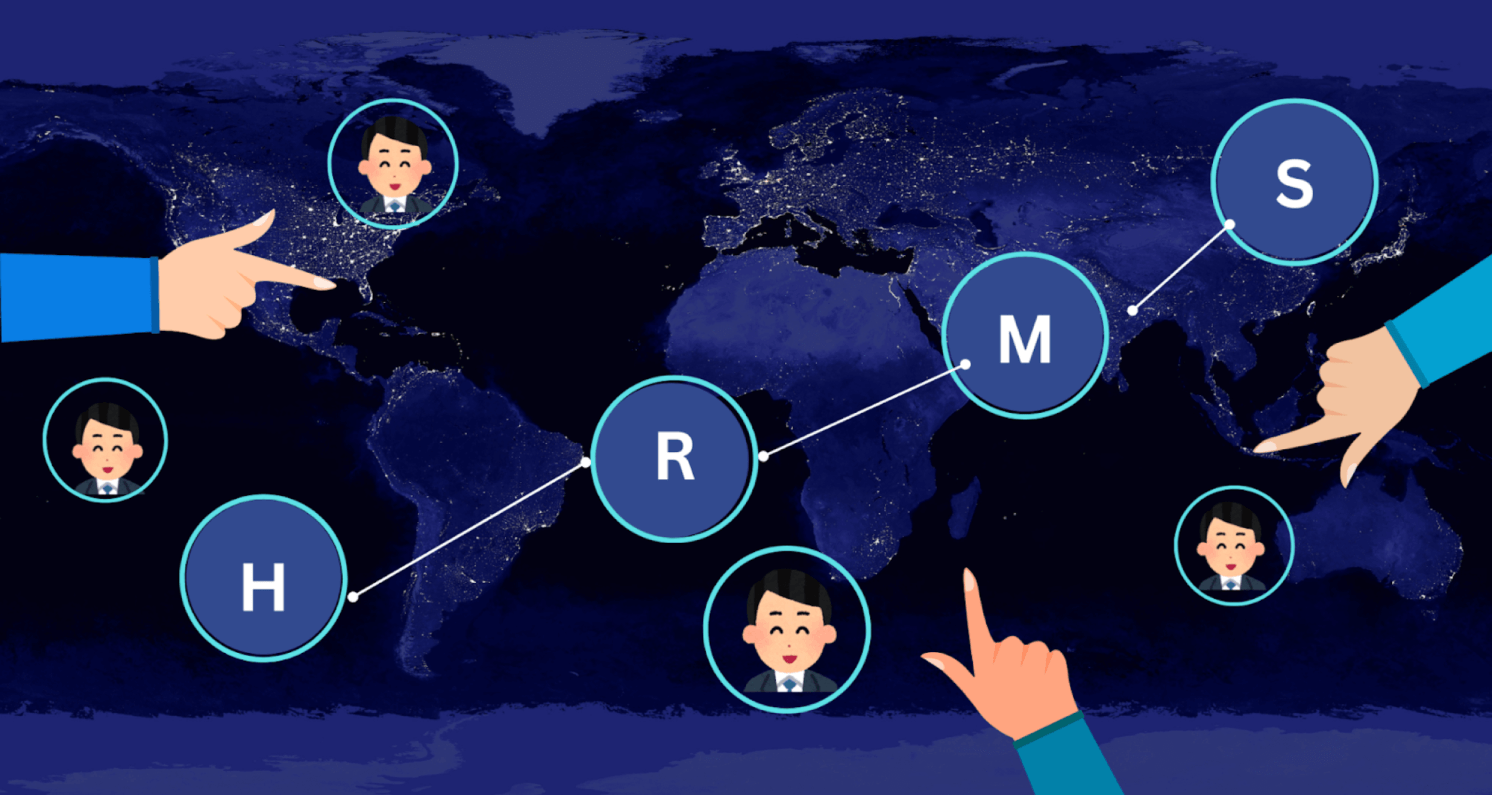Table of Contents:
- 1. Offshore AI development
- 2. Enterprise AI outsourcing USA
An enterprise relies on human staff to facilitate certain tasks, such as support, accounting, etc. These back-end tasks help facilitate the smooth functioning of an organization.
However, many companies have opted to outsource these basic tasks so that the core team can focus on expanding their business rather than pay attention to mundane activities.
With the intervention of artificial intelligence (AI) across all sectors, outsourcing has also undergone drastic changes.
Offshore outsourcing involves delegating business operations or specialized tasks to external firms located in foreign countries, enabling companies to reduce costs, access global talent, and focus on core competencies. Offshore AI development has eliminated the need for human intervention to carry out basic tasks.
In this blog, we will discuss the benefits of AI in offshore outsourcing and how it is transforming enterprises. So, let’s dive in!
The AI Talent Crunch in the US
A huge bottleneck encountered when adopting AI in US enterprises is the shortage of home-grown talent. The unprecedented push for data scientists, machine learning engineers, AI researchers, and other operational agents has become glaring. According to a McKinsey report, more than half of US companies report difficulty hiring for AI-related roles.
Adding to this problem is the very high cost of attracting and retaining these human brains. The best AI experts can easily command an annual salary in the US of $200,000, not factoring in bonuses and stock options. The absence of talent slows down product development. It cramps innovation and stops companies from effectively scaling their AI initiatives.
Rise of Global AI Talent Hubs
In comparison, countries like India, Poland, Ukraine, Brazil, and the Philippines have emerged as flourishing centers for AI development. These countries are equipped with strong educational systems that churn out thousands of AI-ready graduates every year, many of them English-speaking, already possessing the working knowledge acquired through interaction with real-world projects.
Further enhancement to their prowess has come from government funding and private investments put into AI R&D, especially in India and Eastern Europe. Notably, these two time-zone differences offer round-the-clock development phases, bringing about a swift turnaround on pressing AI projects for US enterprises.
Benefits of Offshore AI Teams
Offshore AI teams offer a strategic advantage to businesses looking to scale their AI capabilities without compromising on quality or efficiency.
1. Boosting Operational Efficiency
Time zone advantages allow businesses to maintain continuous workflows through offshore AI teams. Moreover, with an offshore team, progress is never stagnant, which results in quicker development cycles and faster product delivery. Thus, this 24/7 operational model greatly improves productivity and reduces project downtime.
2. Significant Cost Savings
Partnering with offshore AI teams drastically reduces the cost of hiring, training, and maintaining in-house talent. Companies can access top-tier AI expertise at a fraction of the cost compared to local markets, enabling them to allocate resources more strategically, often reinvesting those savings into innovation, marketing, or other critical areas.
3. Enhanced Quality and Consistency
Many offshore teams bring specialized experience and deep technical knowledge in AI, machine learning, and data science. They adhere to global standards and quality frameworks, ensuring that deliverables are not only technically sound but also consistent across projects. This leads to reliable outcomes and long-term value.
4. Scalability and Flexibility
Offshore AI teams offer businesses the flexibility to scale resources dynamically based on project demands, ensuring optimal efficiency and cost-effectiveness. Whether it’s a short-term project spike or a long-term product development roadmap, companies can adjust team sizes quickly without being tied to permanent hiring commitments. This flexibility enables rapid adaptation to shifting market demands and evolving business priorities.
5. Data-Driven Insights for Strategic Decision-Making
These teams excel at uncovering actionable insights from large datasets through the use of advanced analytics and cutting-edge AI tools. By leveraging their expertise, businesses can make informed decisions backed by data, whether it’s forecasting demand, identifying customer behavior trends, or optimizing operations for better ROI.
6. Improving Customer Experience
Offshore AI experts help implement AI-driven solutions such as chatbots, virtual assistants, and personalized recommendation engines. These tools enhance responsiveness, accuracy, and personalization in customer interactions, resulting in higher satisfaction, loyalty, and engagement.
7. Innovation & Competitive Edge
Offshore AI teams often have experience across various industries and are exposed to the latest technologies and trends. Their diverse perspectives and innovative thinking help companies stay ahead of the curve, experiment with new ideas faster, and maintain a competitive edge in their respective markets.
Managing Risks and Challenges
While the benefits of partnering with offshore AI teams are clear, it's important to be aware of the potential challenges that come with global collaboration:
- Data Privacy and Compliance : Managing sensitive data across international borders raises concerns about compliance with regulations such as HIPAA, GDPR, and CCPA.
- Cultural and Communication Barriers: Differences in work culture and language can lead to misunderstandings if not effectively managed.
- Intellectual Property Protection and Security: Safeguarding intellectual property is a top priority.
Solutions and Best Practices
- 1. Legal Safeguards: Implement strong non-disclosure agreements (NDAs) and data processing agreements.
- 2. Vendor Vetting: Select partners with relevant certifications and a proven track record of reliability.
- 3. Agile Collaboration: Utilize tools such as Jira, Slack, and GitHub to maintain transparency throughout the project.
- 4. Hybrid Teams: Integrate in-house and offshore teams to improve alignment and collaboration.
By addressing these challenges and employing best practices, organizations can effectively work with offshore AI teams.
Strategic Use Cases of Offshore AI Teams
Offshore AI teams have been acting across a broad spectrum of solutions in various industries, such as:
- Retail : Predictive analytics for inventory management and customer segmentation
- Finance : Algorithms for fraud detection and credit scoring
- Healthcare : AI-driven diagnosis and patient data modeling
- Manufacturing : Computer vision solutions for automated quality inspection and predictive maintenance
- Customer Service : Intelligent chatbots and voice assistants
For example, a Fortune 500 retail company collaborated with an Indian AI company to build a recommendation engine. This project produced measurable enhancements in customer engagement and sales while costing a fraction of what it would have taken to develop in-house.
How to Choose the Right Offshore AI Partner
This choice is crucial in determining the success of your initiatives in AI. What to look for is as follows:
- Technically Excellent Used to being in AI domains relevant to your business.
- Scalability Can gear activities up or down, subject to project requirements.
- Communication Frequent and clear updates, strong English fluency.
- Security & Compliance Observing the global laws for data protection and best security precautions.
- References Great testimonials and success stories.
Future Outlook: Offshore AI as a Long-Term Strategy
The offshore AI team trend is more than a temporary fix; it is a fundamental long-term strategic shift. As AI gradually permeates through each stitch of the fabric of an organization, these companies are building long-term relationships with offshore teams, often treating them as extensions to their internal staff.
I innovation with the phenomenal growth of AIaaS (Artificial Intelligence-as-a-Service) models, where companies subscribe to capabilities rather than develop them on their own.
The more this area opens toward global collaboration, the more there are shared necessities for AI governance, ethics, and sustainability, effectively paving the pathway toward a more inclusive form of responsible AI development.
Conclusion
Off-shoring AI work is no longer just about cost-cutting; it is about being more agile, accessing top talent worldwide, and speeding up the pace of innovation before anyone else. US enterprises best positioned to enter the AI-powered future will be those that acknowledge this worldwide shift and choose their offshore AI partners accordingly.
Accelerate innovation and scale quickly with BestPeers—your reliable partner for enterprise AI outsourcing in the USA. Access to global talent and maintain a competitive edge in the AI landscape. Together, let’s shape the future.




